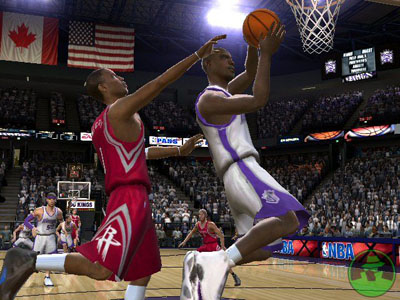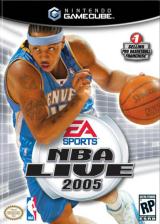Deeper is actually the perfect way to describe the new Dynasty Mode, which has been rebuilt from the ground up to create a more streamlined, user-friendly experience. When starting the mode, you'll have to choose your team, with a series of gauges telling you what type of game they play. The info is broken into four different categories, with each one offering a glimpse at the type of play to expect. You can see the kind of offense they'll be running (fast break or half court), what style of play they prefer (physical or finesse), their defensive set up (man to man or zone), as well as whether they like to pound the ball into their big men or rely on outside jumpers to rack up the points.

After a brief Training Camp segment in which you decide what elements of the game to focus on to prepare for the upcoming season, you'll jump to the team calendar in order to see what's coming up. The calendar is one of the most important parts of the dynasty mode, as you'll rely on it to see what games are on tap, as well as any trading or signing deadlines that are looming in the future. As in the dynasty modes in many other games, you can pick a day on the calendar and simulate all of the action up until that point. However, in a nice new addition, when you simulate your team's games you can watch the score change from quarter to quarter, and hop in at the end of any quarter. This can come in very handy if your team is in a close game after three quarters, as you can take over and carry them to victory.
While the calendar is important, you'll probably spend most of your time on your in-game PDA, which allows you to receive emails from just about everyone that's important to you, from the team Owner to the Scouting Staff. The Owner will give you advice and guidance, in addition to letting you know how he feels about your efforts in the form of a GM rating. Emails from the Medical Staff give you updates on the health of your players, while the Coaching Staff will tell you everything you need to know about the players, including what kind of training they'd benefit from.
Two of the biggest changes in the game are the trading and signing processes. First of all, you now have to worry about dollars and cents, rather than the slightly abstract points system that was used in previous versions. Secondly, the timing of the whole thing has changed. Before, if you made a trade offer, you'd find out immediately if it had been accepted or rejected, which isn't how it happens in the real world. Deals involving millions of dollars don't just happen without some serious thought, so you're forced to wait a few days as the other team (or the player's agent, in the case of free agent signings) mull over your proposal. This injects a nice dose of realism into the game, as you now must think twice before making an offer, since you can get in trouble if you've got multiple deals on the table.





